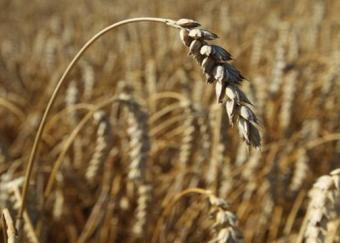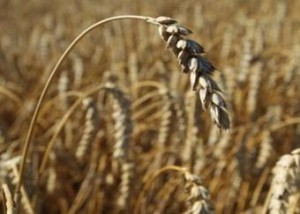April 30, 2014 – The weather here in Toronto this spring is counterintuitive to the reality of a much larger picture of gradual warming of the global atmosphere. That’s because the weather outside here remains frightful – cold, rainy and windy. With my daughter’s spring wedding less than two weeks away it appears we will be celebrating mostly indoors for that event.
It seems, however, that even though the crocuses here are barely peeping above the ground and cherry blossoms are as much as month behind their normal blooming, we are seeing concrete evidence that the combination of overall atmospheric warming and increased levels of CO2 are changing plant behavior.
In a study done by a research team of ecologists from Colorado and Wyoming and released this week in the journal Nature, there is overall evidence of lengthening growing seasons from around the globe. The specific study looking at grasslands in Wyoming confirms what similar studies in Europe have shown. Spring flowering is happening as much as a week sooner and autumn appears to be happening as much as four days later.
The study which followed six common species of grass and shrubs planted in experimental plots looked at temperature and CO2 levels and discovered that the latter had even a greater influence than the former in extending the growing season. This is the first time elevated CO2 has specifically been quantified. On average the growing season on plots where only warming was applied was extended 6.2 days. But on plots both warmed and exposed to elevated CO2, the growing season was 14.2 days longer.
Another interesting side affect of increased CO2 is its impact on plant water loss. When CO2 levels rise, the stomata, the plant’s breathing pores close. This means less water is released into the atmosphere. So elevated CO2 may prove to have a benefit in growing areas that get less precipitation.
Many climate change and global warming skeptics argue that increased CO2 will lead to a new agricultural revolution in which plants will flourish. And you can see why from the results of this study. After all, a longer growing season means greater yields. Add to that lower water loss in marginal dry farming areas and you gain another advantage. But what these skeptics fail to realize is this. When you change plant behavior there are unintended and unforeseen consequences for other life on the planet.
For example, the benefit of a longer growing season means earlier flowering of plants. For pollinators like bees and other insects, how will they be impacted? Will their natural cycles synch up with new plant germination and flowering? And if they don’t what will that do to crop yields? And what about opportunistic invasive pests and weeds? Will they also get a head start from extra CO2 ? And increased CO2 may affect how plants assimilate nitrogen. Recent studies on wheat have shown a reduction in nitrate uptake in the presence of increased CO2 levels. And that means a decline in the protein concentration within the grain. Increased CO2 studies on rice and barley have netted similar protein decline results. So if nitrogen uptake is impacted by CO2, wouldn’t increasing applications of nitrogen fertilizer offset the protein decline? Yes, probably, but more nitrogen means nitrates leaching into groundwater with consequences for lakes and streams. And increased nitrogen will also mean increased emissions of nitrous oxide, another greenhouse gas.
Illustration source: http://newstonight.co.za/content/adverse-impacts-nutritional-quality-food-crops-increase-co2-levels

















